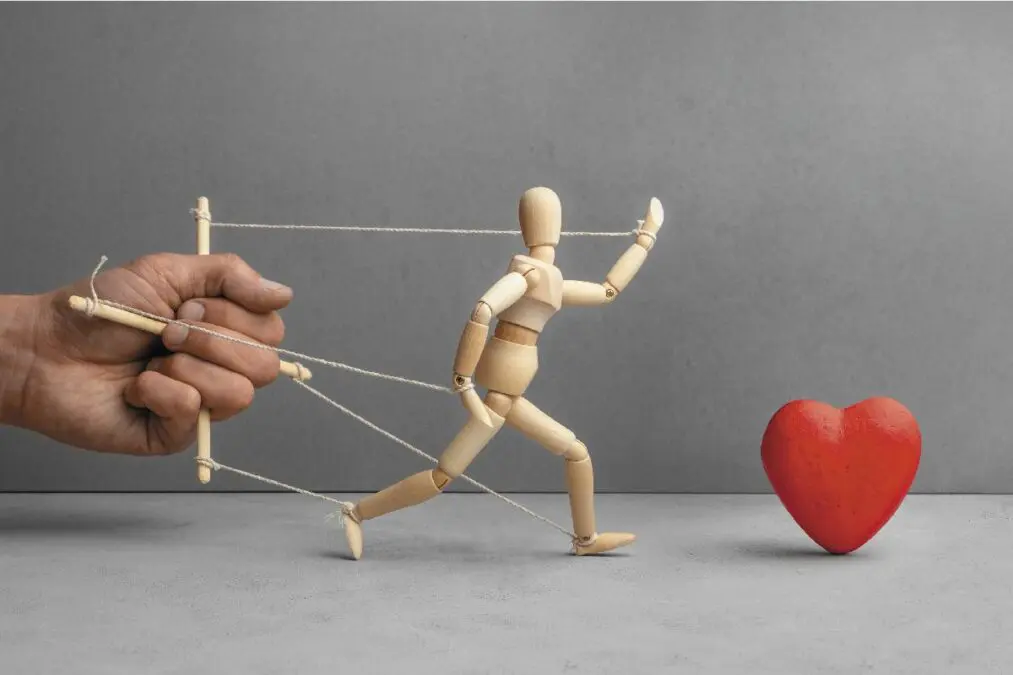Culture is addressed to intelligence… but the latter does not necessarily listen to it. However, to do without reflective thinking is a luxury that is generally paid for dearly, because it is indeed an error that transforms the individual into an automaton. Seen from this angle, the Cartesian cogito “I think, therefore I am” so much criticised in modernity is still valid. Indeed, without forgetting that from a psychoanalytical point of view I can only be where my “I” does not think (in a symptom, a dream, a missed act…), from another point of view, more psychoanimist, where I do not think I am thought. Unavoidably. I am thought by this “great other Great” that is the system with its ever more invasive media that immerse me in a constant water bath of “information” similar to collective hypnosis.
The illusion of an alternative of which the political discourse is the paradigm shows it perfectly: Right or Left, pro or con, yes or no… A genuinely personal choice remains arduous. However, it is this same discourse that attracts audiences and that takes precedence in any media-political forum. In short, those who believe that they are free while dispensing with reflection or only being interested in the (apparently) more concrete issues, forget that materialism is also an ideology and are certainly reduced to being a kind of neuron of the system. It only takes a blink of an eye to go from thinker to thought.
Inculture and arrogance, hello damages
But what is the connection between thoughtfulness and uneducation? If we understand the latter as synonymous ignorance, no problem because we are all more or less (enormously) ignorant. Knowing that we are ignorant, according to the precepts of the learned ignorance of Nicolas de Cues, is to give ourselves the possibility of learning, of cultivating ourselves, of advancing. This is, paradoxically, the basis of all wisdom. What spoils things is this highly unstable and dangerous mixture of ignorance and arrogance, stupidity being the slide from ignorance to the presumption of knowledge. Open-mindedness is always what saves from a dead end and the precautionary measure that prevents this bomb of stupidity that is too often the human being from doing damage. Here is a small illustration. Let us imagine the case of a budding handyman who does not know how to use a hammer and who has been driving nails with pliers for years. Now imagine that a friend tells him about the existence of the hammer. This is, of course, a simplified situation, but in reality, it is a rather common one.
There is a strong likelihood that our handyman, a victim of a certain misoneism, will resist changing tools because even if he sometimes hits his fingers and bends nails, he considers his knowledge satisfactory. His motto could be:
“I know, therefore I am”!
Transposed to the intellectual level, pliers and hammers metaphorically refer to instruments of thought, to paradigms, and the more we know about these instruments, the more relevant and even convincing our interpretations of man and the world can be.
For example, the psychoanalytical concepts of the unconscious, archetype, sublimation and impulse are undoubtedly a serious loss for any intellectual, psychoanalyst or not.
In other words, reflective thinking and all the possible types of intelligence (the American psychologist H. Gardner counts up to seven) are complex psychic functions, specific to everyone, but deprived of culture they are not necessarily realized.
On the contrary, enriched by a whole range of ideas, notions, concepts, theories, etc., they are able to express the personality of each individual in the best possible way and facilitate its realisation. If there is truly authentic thought, personal to each person, “differentiated” to use a Jungian term, it is largely thanks to the possibilities represented by the wealth of reading keys belonging to our cultural heritage. Religious fanatics, for example, believe in the possibility of a single, literal, non-hermeneutic reading of the sacred texts, which in no way promotes the development of their intelligence. On the contrary, those who practice the art of interpretation, such as cabalists, see their intellectual capacities increase.
While contributing to intelligence, culture does not prevent stupidity
Of course, fans of meditation might object that man is generally too mental and that thinking often complicates existence more than it facilitates it. True. Thinking has an obsessive side that it is always good to reduce. The psychoanalyst, for his part, could see in what goes under the designation of “culture” the product of an “I” constantly alienated in its discourses. Also true. Intellectuals tell themselves as many stories as children, even if their discourse is more erudite and seem more serious.
But the problem is not the opposition between thinking and not thinking or between thinking and acting. It is the richness, that is, the quality of the thinking that matters. Even the most extroverted, not to say superficial, a person can find in culture the material and tools necessary to sharpen his or her thinking and to form a differentiated thought, which is not a simple repetition of what he or she has heard or learned by heart. Without necessarily adhering to any system or theory.
The great philosophers, especially the French before the Revolution, were basically freethinkers rather than theorists. So we come back to the theme of this Rebel(s), for it is precisely the degree of culture (or lack of it) that, in many situations, can actually make the difference.
Could we say that stupidity is inversely proportional to the degree of culture? Absolutely not. People are intelligent regardless of their level of culture, only they are limited by it. They show, as we say, an intelligence of life, relational and social know-how, a healthy curiosity. Which is perhaps the main thing. And let’s not forget that all the culture in the world, without a good education, doesn’t prevent the “little all-powerful tyrant” from poking his pretty head out again and again.







